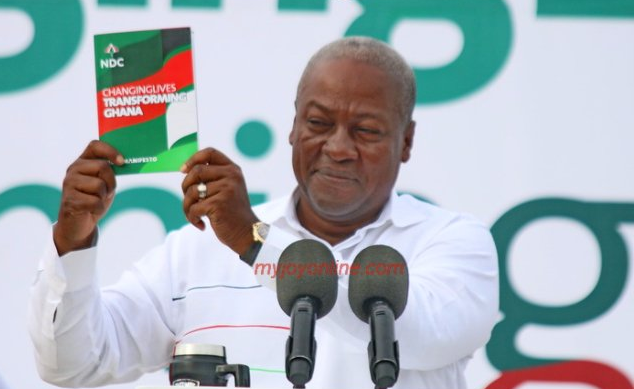
Manifestoes and helpless people
Gradually, the manifestos are being let out of the bags. The ruling National Democratic Congress (NDC) released theirs recently under the title “changing lives, transforming Ghana.” The main opposition party, New Patriotic Party (NPP) is yet to do so.
Advertisement
A number of issues have come up for discussion after the release of the NDC manifesto. And the main challenge has been from the NPP who, in so many ways, alleges that the ruling party has stolen its ideas.
They don’t stop there. They go on to indicate how pointless and unachievable most of the promises contained in the NDC manifesto are – especially when the track record of the NDC in government is considered.
Indeed, a press conference was held by the NPP. The aim of the conference was to point out how unachievable the promises outlined by the ruling party were. One would have thought that the NPP would focus on releasing their manifesto as well; and do what they have to do – which is to prove to Ghanaians that they are better prepared and better placed to become the ruling government.
Come what may, the NPP is going to release its manifesto. The NDC will have its day. They will first accuse the NPP of stealing their ideas. They will point out how unworkable the various policies of the NPP are.
They will juxtapose that with theirs; and for whatever it is worth, seek to point out that they are a far superior party than the NPP. Which is all well and good.
But there is a problem here. None of the means by which we rely on to determine who has the right to become President actually helps us in dealing with the question as to whether the person will be a good President. And by good President I mean a successful President.
I don’t see how debates make a good President. There have been so many orators who have failed to transform their nations. I don’t see how manifestos make a good President. There are so many unsuccessful leaders who in their past lives were writers. I don’t see how a bag load of promises is a predictor of a successful presidency.
A manifesto is not a contract. A political party is not bound by its manifesto. A party may win an election on the basis of a manifesto. Then they come to power. And then the party may decide it no longer has use for or intends to be bound by the contents of the manifesto.
There is nothing that can be done about it, even if it was the basis upon which you cast your ballot. A manifesto is simply a public declaration of what a government intends to do within a particular period – nothing more and nothing less.
Lord Denning, a respected English judge said this of a manifesto: A manifesto issued by a political party to get votes is not to be taken as the gospel. It is not to be regarded as a bond, signed, sealed and delivered. It may contain – and often does contain- promises or proposals that are quite unworkable or impossible of attainment. Very few of the electorate read the manifesto in full. A good number only know it from what they have read in the newspapers or hear on radio.
Manifestoes are not enough to reveal the intentions and desires of a person seeking to come to power. Often, the realities of being in government are far and stack from that of being in opposition.
In the case of a ruling government, the desire to stick to power overrides all the things learnt about the weakness in the economy – including its limited resources. It is not surprising, therefore, that promises are and will be made in their abundance in the run up to the elections.
Ultimately, very few people will make up their minds on the choice of candidates based on what they have read in a manifesto. The language, in which some of these policies are captured, plays a role in all of these.
What is an average voter supposed to do with a statement like “We would ensure that macro-economic stability is brought back and the perennial balance of payment deficit is reversed”?
The language is couched in a way that it is out of the reach of many people (no matter how genuinely they may be interested in discovering what the parties have to say); and that is another reason why manifestos are not going to be the game changers. In fact they have never been.
I do not have a solution to this; but probably it is time we become more rigorous in our evaluation and assessment of our political personalities. But to simply rely on manifestos alone is a lost cause.



